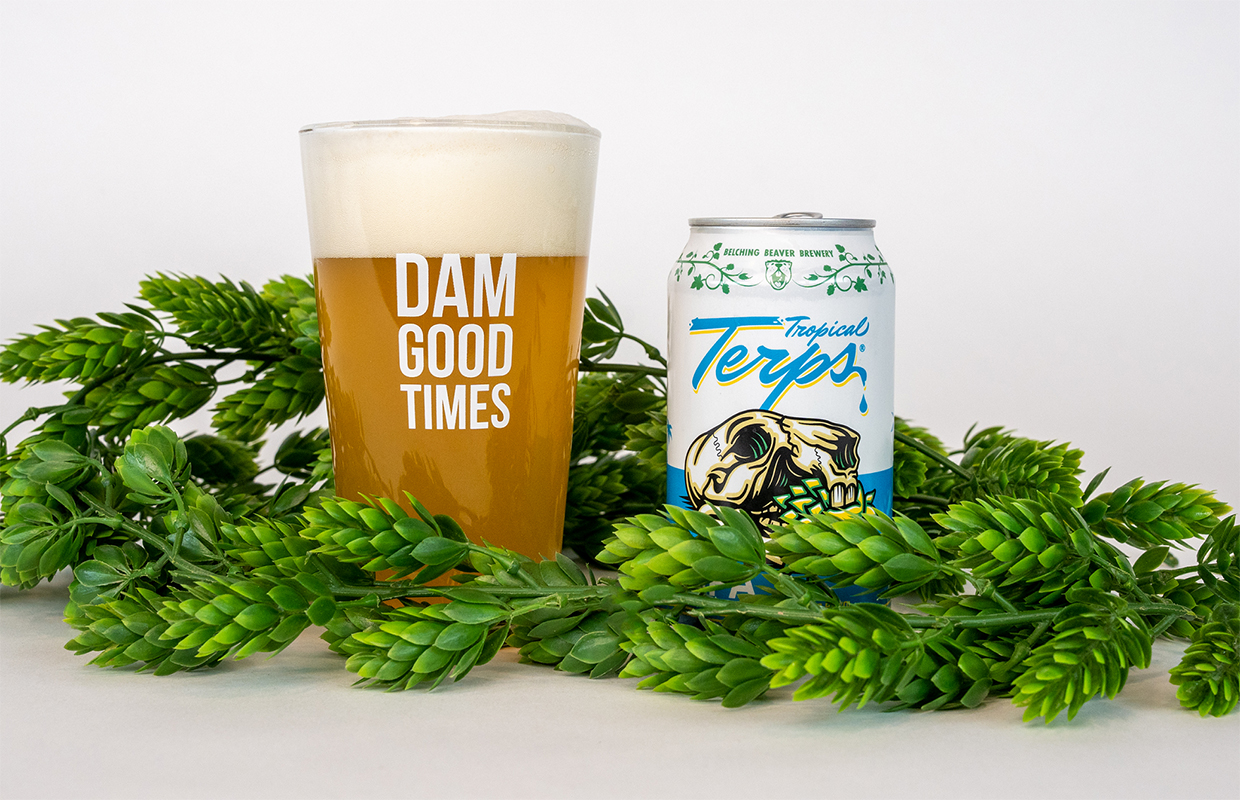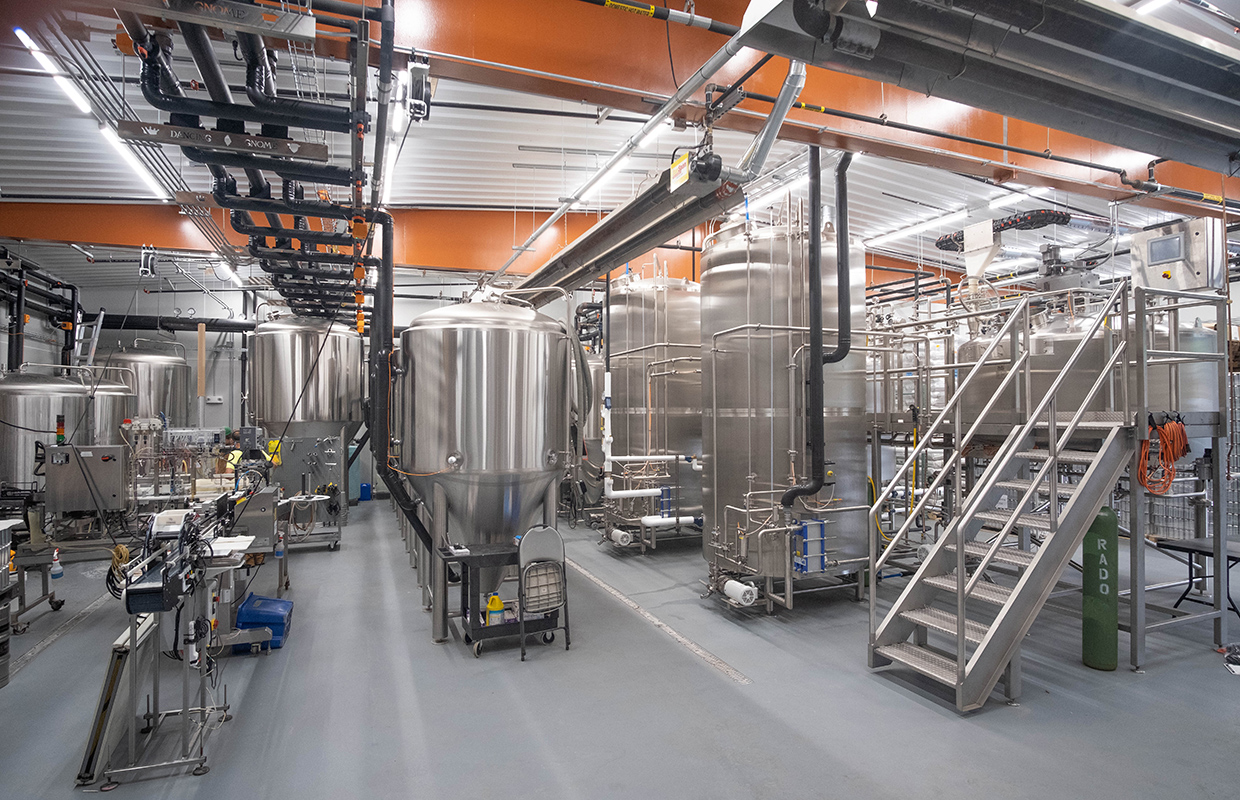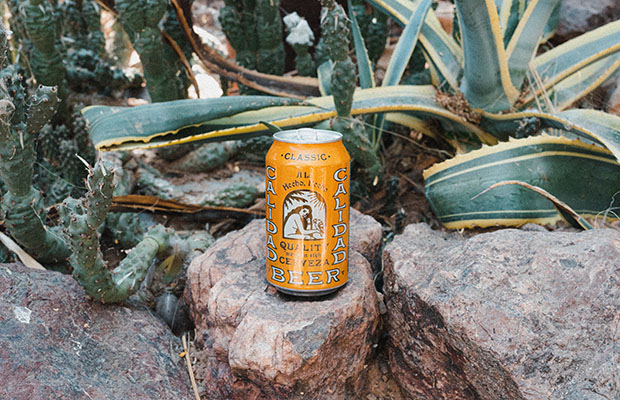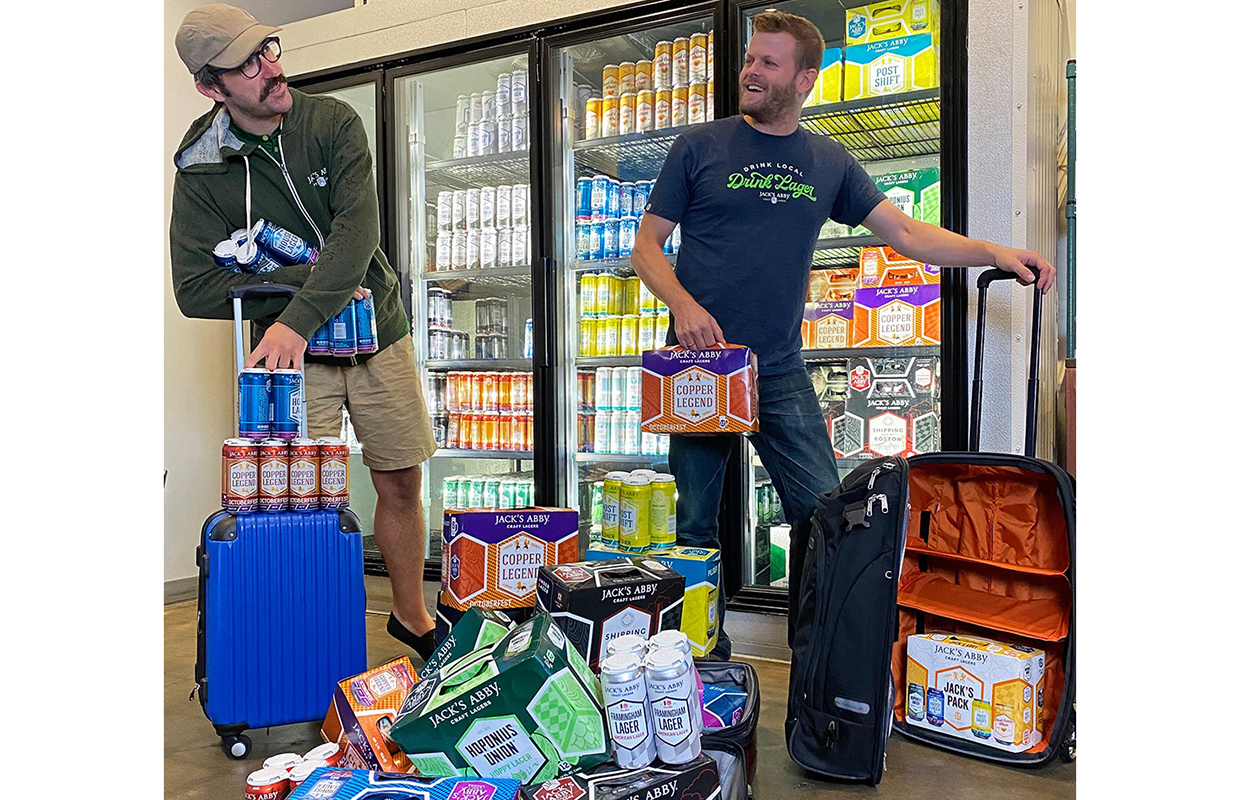
Any time you have a brand of beer that is hop-forward or even hop-aroma forward, the loss of volume per batch goes down as more and more hops are added for each barrel of beer.
That case for Belching Beaver’s new Tropical Terps IPA is the same said Brewmaster Troy Smith, but finding a new way to give a sensory overload came upon him during the brewery’s 10-year celebration and leading to the creation of this now year-round brand.
It is the company’s first core beer that uses terpenes, which are aromatic compounds naturally found in citrus fruits, pine trees, hops, and cannabis.
“Marrying the concept of marijuana and hops has always been a big thing,” Smith told Brewer. “Not just because they’re related in aspects, but also because of their aromas. You get so many different varieties of hop aromas and different characteristics.
“You go into a dispensary, there’s like 1,000 strains in there. You smell them. And it’s heaven in a jar. My goal for the terpene project was to try to marry some of the characteristics of the marijuana plant and traits into the beer and have it pair well, with the different hop variations that we’re using.”
Tropical Terps IPA is 6.6% ABV and includes Simcoe, Mosaic, Strata, and Citra hops. Terpenes bring to the juicy IPA new flavors and aromas that are unattainable from hops alone, featuring tropical notes of melons, mango, guava, and pineapple. The terpenes used for the beer were not derived from cannabis.
“They’re basically put through a machine and they’re able to mimic the flavors and aromas that marijuana is giving off in a legal format,” he said. “When you smell these jars of terpenes that I have, it’s truly unbelievable how much it smells like a big dank bud.
“It definitely took a lot of trial and error to try and find ones that were not over the top and didn’t just completely overpower the beer.”
Tropical Terps isn’t a hazy, but it’s not a West Coast IPA either.
“I’m not loading it up with lots of wheat and things like that to keep it super turbid — but more juicy just because of the softness of the mouthfeel and things like that. Throwing a little oats in there, mashing it a little bit higher temperatures, but not not hitting it super hard with lots of weed. It dries out a little bit more than your traditional hazy IPA, but it doesn’t dry out quite as much as a West Coast.
The beer won’t “punch you in the face with weed,” Smith said, but it’s there and he thinks that was a delicate balance that he had to play with initially while creating Dam Good Decade for the anniversary project.
“We still want this to be very much a beer people will not have to think twice like, oh, well, is this dancing on the edge of something else,” he said. “But when you first crack that can or poured into a glass, it’s pineapple, melon, mango, and then the hops start taking over. And it’s also great because the flavors are stable so there’s not as much oxidation that’s going to occur versus just having hops.”
Compared to thiols like Phantasm, Smith said what he found was super fruit notes, but more in the flavor.
“It almost to me made the beers a little too sweet,” he said. “And it’s not exactly cost prohibitive. When you’re a brewery and you’re trying to push beers in chains to multiple states, being price conscious is definitely part of our business.
“It’s great small breweries that are able to produce $20 four-packs, and there’s still some big breweries that have been able to do that. We’re not one of them I can tell you that much. Price consciousness is definitely important.”
Adding terpenes as a liquid means it’s something that’s not going to consume more of the beer in the process as well, SMith said, meaning a better volume per turn and more product to sell.
“So many these people are getting into hop extracts, where you’re distilling or steam distilling or doing things like that to pull the aromatic compounds out of it, and just be able to pour it into it as a liquid form,” he said. “We’re not consuming more and more beer with every more pound of dry hops that we’re adding.”
Selling Tropical Terps IPA at $12.99 for a six-pack of 12-ounce was an important decision as well, he said.
“Part of the reason that we’ve also done the transition from 16 to 12 ounce in pretty much every one of our core beers except for specialties was to keep the price a little more conscious, especially with the given economy that we’re in,” Smith said. “People are going to start looking at things like, ‘I can buy a six pack for $12.99 or I can buy a four-pack for 16 and the consumer is going to look at a six pack differently than they’re going to look at a four pack.
“So the price point is there. It’s not overly priced. That was a big portion for us.”




Be the first to comment